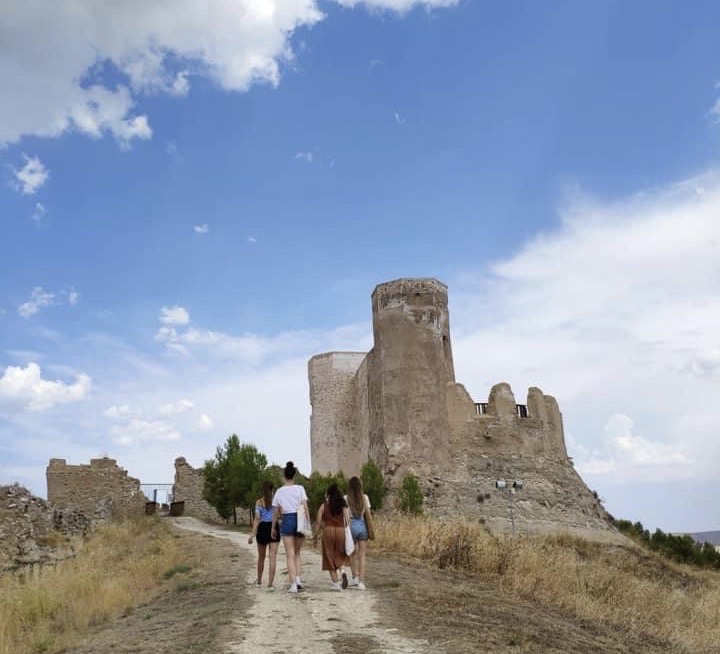The first students of the Desafío Programme, funded by the DPZ and managed by the University of Zaragoza, are already in Territorio Mudéjar learning and putting into practice applied cultural heritage management models. This is the third edition of an initiative that allows young university students to do work experience in towns in the province of Zaragoza and that seeks to help young people with ideas to reach – and stay – in rural areas.
“By showing students how we work with the heritage in these towns, we pave the way for them to choose how they want to focus their careers in the future, and we hope that this future is closely related to our region,” explains Victoria Trasobares, director of Territorio Mudéjar.
The team of Art History students participating in the Desafío Programme – María Foradada, María Domínguez, Elena López and Sarai Salvo – have been living since the beginning of August in the organisation’s headquarters, Tobed, where they are getting to know the work system. They are joined by Eugenia Gallego, María Irazabal and Derry Holgado, who are working from a distance.
The program’s first phase consists in an introduction to the entity and its working methods, familiarizing the students with the networking system and the partners involved: city councils, culture officials and individuals in charge of cultural and heritage dissemination programs, combining classroom learning with fieldwork. In addition, the students are being trained in the cultural heritage management project methodology by professionals in diverse disciplines such as project design and assessment, awareness of the applied management models implemented in our region, and in the fields of project dissemination management and communication.
The Challenge Programme – now in its third edition – is aligned with Territorio Mudéjar’s strategic objective of promoting curricular or training internships and professionalising profiles linked to heritage in order to boost employment in rural areas, attract professionals and develop projects that involve the conservation of our heritage and investment in our villages as a differentiating element.
What is special about Territorio Mudéjar? It is framed in the rural environment, it works in a network with 34 municipalities and with interdisciplinary professionals, it also works with an international brand such as the UNESCO World Heritage declaration of three of the monuments of its member towns and with a model that is committed to professionalism, scientific rigour, vanguard and sustainability and that makes the inhabitants of the villages an essential part of its projects.
